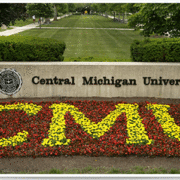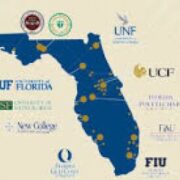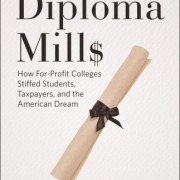“Lucky Hank’s screenwriters could have drawn upon the contemporary scene to satirize higher education while retaining features that endear the novel Straight Man (1997). Instead, they chose to stick closely to incidents and scenes from the book—a book released when neoliberalism in higher education was nascent, and Conservatives had not yet declared a full-scale war on higher education.”
The AMC production of Lucky Hank (2023) debuted this spring. It stars Bob Odenkirk (Breaking Bad, Better Call Saul) playing the lead role of William Henry Devereaux, Jr., an English professor/department chairperson at a financially strapped state university in eastern Pennsylvania. The series is based on Richard Russo’s Straight Man (1997), a novel written with wit and depth, ingredients that have kept it fresh and appealing over the years.
While the televised version is faithful to Russo’s original contribution, I believe the alignment is the major problem with the adapted version. After offering a snapshot of the book and TV adaptation, I’ll address why and how Lucky Hank might have been crafted differently.
Straight Man works because Russo (Ph.D., University of Arizona) has professorial experience, first at Southern Illinois University (Carbondale) and later at Colby College, before leaving the Academy to devote his time to writing, including writing Empire Falls, which won a Pulitzer Prize in 2002. In Straight Man, Russo draws on faculty experience to present an insider’s view of the trials and struggles associated with faculty life, including (among a range of things) feuds/alliances and widespread contempt for administrators.
On faculty kibitzing related to a department chairperson search….
“Our department is so deeply divided, and we have grown so contemptuous of each other over the years that the sole purpose of bringing in a new chair from the outside is to prevent any of us from assuming the reins of power.… We /then/ winnowed out the personally threatening applications /because/ to hire someone distinguished would be to invite comparison with ourselves, who were undistinguished.” (pp. 17-18)
Later, as Devereaux, Jr. waits to learn who will succeed him as department chair (the English faculty are casting ballots), he scurries to a place where nobody will find him.
“Many things will occur to a man like me when trapped in a filthy crawl space, separated from light and camaraderie by asbestos-contaminated ceiling tiles and insulation. During the half-hour since the vote, thirty long, hot minutes spent on my hands and knees, scuttling about in the dark, looking for a place to alight, I’ve reluctantly been forced to confront a dark reality. I appear to be a man in trouble.” (p. 284, bolding added)
By the book’s end, Devereaux, Jr. comes to terms with his life. He has a family (albeit barely intact), enough money to live comfortably, and friends. Most importantly, Devereaux, Jr. seems to be winning the struggle to “discover himself.” But getting there wasn’t easy.
Devereaux, Jr.’s academic career started with promise, having authored a novel as a young scholar. These days, though, most of his writing comes in the form of lengthy Op-Eds published in the local newspaper, often appearing alongside tome-like essays written by his mother—once a promising academic herself—who some readers think is his wife.
In reality, his mother gave up her academic career in exchange for supporting Devereaux, Sr., a distinguished academic with an Ivy League position and the author of field-changing books. Years earlier, Sr. walked out on his family—an act Jr. learns wasn’t as life-shattering for his mother as it was for him, even though his mother knew Sr. had flings with graduate students and lived a predominantly self-absorbed life. Now at his career’s end and suffering from the onset of dementia, Sr. returns home, welcomed by his wife but not by Jr., who is already in the middle of a churned-up life. Among other things, Jr.’s spouse has taken a job in New York City, and he discovers by chance his son-in-law in a compromising situation with a former adjunct English prof whose position Jr. had eliminated “for her own good.”
In addition to his father’s return and myriad other personal/familial issues, Devereaux, Jr. also deals with a professional dilemma. The straight man moniker comes from Jr.’s belief that “English is a joke department in the eyes of the university community” (p. 240). Consequently, he adopts the self-appointed role of a straight man. Lucky Hank, on the other hand, is how Devereux Jr. imagines he’s viewed by the school’s chief executive, Dickie Pope, AKA “Little Dick” (p. 161). Pope is an administrative conniver who wants to construct a campus building by cutting faculty positions and using salary resources to complete the project. A good share of the book (and an arguably larger share of the TV series) is devoted to Pope pressuring Devereaux, Jr. to cut English faculty positions. It culminates in a battle between the two to get the project done/undone. Devereaux, Jr. wins in the end, and Pope, who thought he’d leverage the project to secure a bigger and better position at MIT, is ousted by the Board of Trustees.
What I like about Straight Man is that many scenes are relatable. Because they are life issues, they are not particular to higher education even though the novel is set in a university context (e.g., Jr. coming to terms with a prodigal father). The same assertion applies to Lucky Hank, which strikes me as a compact version of the book presented in video form. That said, broad applicability means there isn’t a deeper dive into what’s happening in higher education. I never considered that an issue when the book was released over a quarter-century ago. Higher education was different then. I see it as a problem today.
Lucky Hank sticks too closely to the book—a book released when two compelling influences on higher education, which I’ll identify and summarize, were either in the nascent stage or not yet in the picture.
The screenwriters could have drawn upon those influences to satirize higher education while retaining features that make Straight Man endearing (e.g., Devereaux, Jr.’s eccentric personality). They did not, and that’s why aligning the 2023 teleplay with the 1997 book represents an opportunity missed.
The neo-liberalization of higher education became noticeable during the last fifteen years of the 20th Century. Since then, it has aged in place and is now firmly entrenched in the system. Money, strategic positioning, and branding became the rage—they are the things businesses do—and, like businesses, colleges/universities began competing for everything (e.g., students, donor dollars). The cost is mission displacement, a tragic outcome because of higher education’s unique mission in a democratic society.
Organizational matters—not “the work” of higher ed (teaching, research, and service)—began getting the lion’s share of attention internally and in the public domain. Things like peer rankings and endowment size (comparisons among schools) began trumping why critical thinking and exposure to diverse cultures/perspectives are fundamental to what it means to be “an educated person.” On the public policy side, state legislatures viewed public higher education more and more as a line item in the budget, and over time they reduced financial commitments, jeopardizing higher education’s social institutional status. Rapidly escalating tuition and related costs eventually turned higher education into a quasi-private good, and rising costs created a debt crisis for millions of students and their families.
Perhaps the clincher of neoliberal impact is that historical answers to fundamental questions—what’s college for/what’s the purpose of a college education—are neither as clear nor as concise as they once were. Indeed, the answers are fuzzy or different. The proof is in the pudding, as a dear colleague of mine liked to say. With a stroke of a pen, technical schools became colleges. (What, then, is a college?) With a stroke of a pen, colleges became universities. (What, then, is a university?) Online schools with dubious quality began offering degrees. (What, then, is a college degree?) And many Americans today view schooling for a job and the purpose of higher education as one and the same. (What, then, is the difference between training and education?)
Corporatized and industrialized, higher education today is so enmeshed in a general business model of operating that it struggles to understand/appreciate the business it is in and, what’s more, what it was founded to be.
More recently, there has been a second wave of change, the incursion of right-wing politics on higher education, which displaces the historic mission of higher education and privileges self-serving political objectives. The attack includes textbook screening/banning; defunding/eliminating Diversity, Equity, and Inclusion (DEI) programs; promoting certain narratives in curricula while excluding/banning others, such as Critical Race Theory; establishing centers, institutes, and programs that support/promulgate politically aligned content; attacking/restricting/eliminating tenure systems; removing programs, such as women’s studies, which are viewed as “ideological”; and constituting governing boards and replacing chief executives to reflect a right-wing perspective.
The Washington Post reported this week that 23 state legislatures have a total of 50 bills under review that “weaponize public education” politically. Those proposals make headline news, often championed by politicians as “Anti-Woke” legislation designed to blunt the self-proclaimed “liberalization” of higher education. It is a battle in America’s larger Culture War with higher education, in this case, as the target.
While Lucky Hank has its moments, it lacks the upshift required to make it pertinent for today’s times. A better option? Hank Devereaux Jr., now 76 years old and in the twilight of his career, is the university’s acting president; he’ll retire on July 1. It’s the first day back to work after Thanksgiving Break, and Hank begins the day by reviewing his calendar.
–Meet with donors who want to fund a new institute heralding free market capitalism.
–Meet with a transgender undergraduate student who seeks to compete on the women’s track and field team.
–Meet with the chair of the Faculty Senate because the Board has excluded faculty from serving on the presidential search committee.
–Meet with the “Education First” Committee, an activist group that will present a petition signed by 5000 citizens who want Critical Race Theory dropped from the university’s curriculum.
–Meet with the local school board chair, who, as Hank discovers, will inform him that his novel has been deemed by the public library board as “unacceptable by content.” It will be removed from the public library system before the year’s end.
He wonders what the afternoon will bring.
___________



